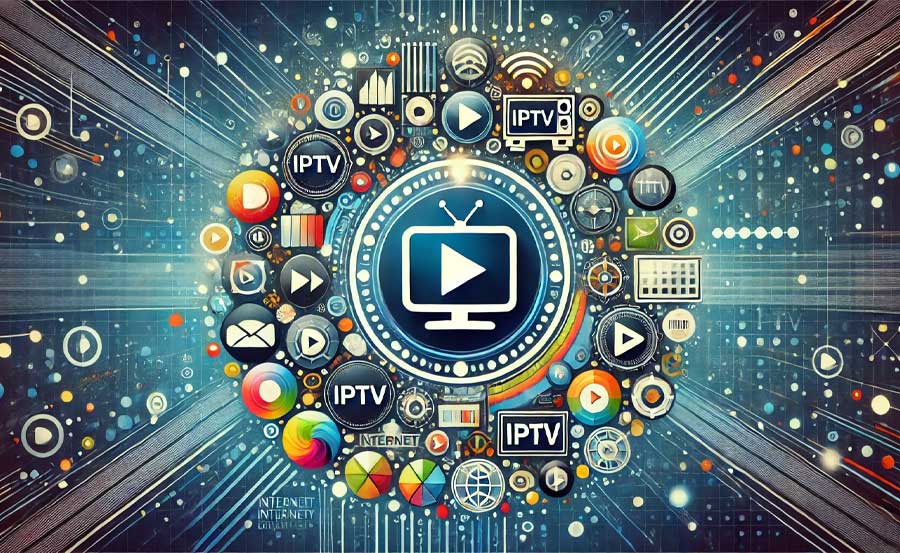Internet Protocol Television (IPTV) is transforming the way we consume television and multimedia content. Unlike traditional broadcast methods that depend on satellites or cable networks, IPTV uses the internet to deliver a wide array of content including live TV, on-demand videos, and multimedia services. With IPTV, television services are no longer bound to the limitations of traditional broadcast models, offering users a more modern, flexible, and personalized viewing experience.
Buy 6 Months IPTV for Endless Entertainment
How IPTV Works:
The technology behind IPTV is fundamentally different from conventional broadcasting. Instead of transmitting signals via airwaves or satellites, IPTV breaks down the content into data packets, which are then sent over the internet to the viewer’s device. This allows users to access live television, on-demand content, and time-shifted programming, all delivered through an internet connection. Since the content is stored on servers and transmitted only when requested, users have a greater level of control over what they watch and when they watch it. This on-demand model is what sets IPTV apart from traditional TV, offering a more personalized and interactive experience.
Types of IPTV Services:
- Live IPTV – This is akin to traditional live TV where users can stream television channels in real-time as they are being broadcast. It mirrors the experience of watching cable or satellite TV, but over the internet.
- Time-Shifted Media – This service allows viewers to watch previously aired content at a later time. With time-shifted media, users can “rewind” live broadcasts or catch up on missed shows. This is commonly seen in “catch-up” services that let you rewatch episodes or programs that aired recently.
- Video on Demand (VOD) – VOD services provide users with access to a large library of content that they can select and watch at any time. From movies to TV series, the content is stored on servers and available to stream at the viewer’s convenience.
Key Advantages of IPTV:
- Flexibility: One of the standout features of IPTV is its accessibility across a range of devices. Whether you are using a smart TV, smartphone, tablet, or laptop, IPTV allows you to stream your favorite programs from almost any location, provided you have an internet connection.
- On-Demand Viewing: Unlike traditional IPTV services, which operate on fixed schedules, IPTV offers the freedom to watch content whenever you want. With VOD, the control is in the hands of the viewer, making it a more convenient option for busy lifestyles.
- Interactivity: IPTV enables interactive features that elevate the viewing experience. From pausing, rewinding, and fast-forwarding live TV, to recording shows for future viewing, the interactive capabilities of IPTV give users unparalleled control.Future Trends in IPTV: What to Expect in the Next Decade
- Diverse Content: IPTV services typically offer a broader range of content compared to traditional cable or satellite providers. Whether you’re interested in international programming, niche channels, sports, or specialized shows, IPTV has something for everyone.
- High-Quality Streaming: IPTV can deliver high-definition (HD) and even 4K quality content, provided you have a fast enough internet connection. This ensures that viewers enjoy a crisp and clear picture with minimal interruptions.
- Cost-Effectiveness: Compared to the often expensive cable and satellite TV packages, IPTV offers an affordable alternative. Subscription fees are usually lower, and there’s the added benefit of only paying for the content you want to watch, saving you from paying for unnecessary channels.
Requirements for IPTV:
Using IPTV is relatively straightforward. Here’s what you need to get started:
- Compatible Device: You’ll need a device such as a smart TV, smartphone, tablet, or a set-top box that supports IPTV.
- High-Speed Internet: A stable broadband or fiber-optic connection is essential for uninterrupted streaming.
- IPTV Service Provider: Subscription to an IPTV provider is required to access the channels and on-demand content. These providers offer access to thousands of channels and extensive libraries of on-demand content.
Challenges of IPTV:
While IPTV offers a host of benefits, there are some challenges to be aware of:
- Internet Dependency: Because IPTV relies entirely on an internet connection, a poor or unstable connection can lead to buffering, freezing, or degraded picture quality. For the best experience, a high-speed and reliable internet connection is essential.Understanding M3U Lists: A Guide to IPTV Playlists
- Legal Concerns: Some IPTV services may operate in legal gray areas, particularly those that provide unauthorized access to copyrighted content. It’s important to choose a reputable IPTV provider that adheres to legal standards, ensuring you access content legitimately.
Conclusion:
IPTV represents a modern evolution in the way we watch television, offering a more personalized, flexible, and cost-effective viewing experience. Whether you want to stream live TV, enjoy on-demand movies, or catch up on missed programs, IPTV provides a comprehensive solution that adapts to your schedule and preferences. With its ability to stream across multiple devices and deliver high-quality content, IPTV is quickly becoming the preferred choice for viewers who want more control over their entertainment.
As technology continues to evolve, IPTV is poised to play a major role in the future of television, delivering content that is as dynamic and versatile as today’s viewers demand. With the right internet connection and service provider, IPTV opens up a world of entertainment at your fingertips, changing the way we watch TV forever.

